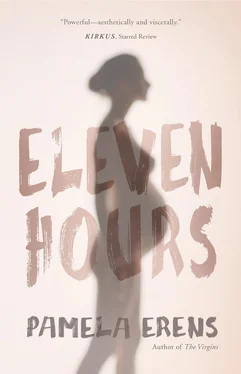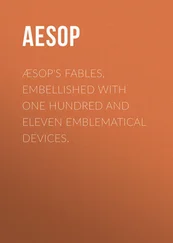Pamela Erens - Eleven Hours
Здесь есть возможность читать онлайн «Pamela Erens - Eleven Hours» весь текст электронной книги совершенно бесплатно (целиком полную версию без сокращений). В некоторых случаях можно слушать аудио, скачать через торрент в формате fb2 и присутствует краткое содержание. Год выпуска: 2016, Издательство: Tin House, Жанр: Современная проза, на английском языке. Описание произведения, (предисловие) а так же отзывы посетителей доступны на портале библиотеки ЛибКат.
- Название:Eleven Hours
- Автор:
- Издательство:Tin House
- Жанр:
- Год:2016
- ISBN:нет данных
- Рейтинг книги:4 / 5. Голосов: 1
-
Избранное:Добавить в избранное
- Отзывы:
-
Ваша оценка:
- 80
- 1
- 2
- 3
- 4
- 5
Eleven Hours: краткое содержание, описание и аннотация
Предлагаем к чтению аннотацию, описание, краткое содержание или предисловие (зависит от того, что написал сам автор книги «Eleven Hours»). Если вы не нашли необходимую информацию о книге — напишите в комментариях, мы постараемся отыскать её.
Eleven Hours
Eleven Hours — читать онлайн бесплатно полную книгу (весь текст) целиком
Ниже представлен текст книги, разбитый по страницам. Система сохранения места последней прочитанной страницы, позволяет с удобством читать онлайн бесплатно книгу «Eleven Hours», без необходимости каждый раз заново искать на чём Вы остановились. Поставьте закладку, и сможете в любой момент перейти на страницу, на которой закончили чтение.
Интервал:
Закладка:
Those days looking at Dora Lisk’s pictures! It was all part of the first flush of Lore’s great romance — the romance of being chosen by Julia and Asa, whose friends were artists and entrepreneurs and do-gooders, people who went to galleries and political rallies and read magazines on politics and culture. Who knew people whose names appeared in the Atlantic and the New York Times —or the children of those people, at least. Lore had imagined New York City would be like this, and was surprised at how easily and quickly, after those first lonely weeks, it fulfilled her fantasy. Julia and Asa had taken her up and made her feel that she was no longer a small-town girl, a kid with a grade-C education who’d spent half of her teens and twenties at a sickbed. That she could be anyone now, could reinvent herself — although it turned out that the most exotic thing to be among these new friends was, precisely, herself. They were earnest and kindly and did not mind explaining when Lore asked — there was no point in faking it — who Jacques Lacan or Rem Koolhaas was. They asked her many questions about where she’d come from and what she’d done before moving to New York, and she answered patiently, but soon she was allowed to slip blissfully into their lives and concerns and forget about what once had been her own.
That Julia’s mother had left the family and moved all the way across the country Lore could almost understand: artists were cruel, artists were selfish, otherwise they could not do their work. (What notions Lore had then! Or perhaps she had in fact understood something.) But Julia’s mother had not come when her daughter was raped. Lore could not see Dora Lisk’s work in the same way after that: the precise brushwork, the young men in cars, the family dinners.
“She said she couldn’t leave the baby,” Julia told Lore. Her mother had had two children with another artist after moving west, and the little one, three months old, had lung problems. Lore tried to decide whether Julia wanted her to say that this was a convincing reason or an unconvincing one. She knew that Julia’s mother had rarely been in contact with her even before the rape. Julia had to this day met her half brothers only once. “One day she just gave me up and never really thought about me again,” Julia said. “How does that happen?” And she touched her cheek with the tops of her fingers, a gesture she had that Lore interpreted as her way of checking her own reality, making sure that she was still there, that she was in fact the one speaking. Julia’s beautiful light-brown skin, and her hair that was also a light brown from her father but coarse and kinked like her mother’s. Checking to prove that the two of them had blended to make something of her, that she was not oil and water, or some other combination of elements that could not cohere.
And when the pregnancy results came back, Julia said, there was the shame associated with it being your father who brought you to the clinic, your father who had to come up close to all those bloody intimate women’s concerns, who had to pick up the prescription for pain meds and watch you shuffle out of the recovery room with a big pad between your legs, and bring you your bag of clothes to change back into.
(But Lore wanted never to feel sympathy for Julia again. “There’s someone I need you to meet,” Julia had said, the very first day they knew each other. “My friend Asa.”)
“Should I put on the TV?” asks Carol cautiously.
“No,” says Lore. Her hands contract with agitation. She pushes herself off the bed and walks to the window. A mistake, she realizes — she will not be able to get back on the bed without asking Carol for help, without having to be grasped and touched by her. The sun is high in the sky but hidden now behind thick banks of gray; the lights on in the buildings opposite glow as murkily as if it were evening. An ambulance whines nearby, and she realizes it’s not the first one she’s heard since arriving. It pulls up and a stretcher is brought out of the back. Set back from the street as she is, she cannot make out all the details, but the figure on the stretcher appears to be a skinny, pale, long-haired man, young, younger than she. A few people stand still on the street to watch, but most go on their way.
Carol comes up beside her, too close, and waits quietly, as if hoping to be of service. Miserably, Lore watches a few flecks of snow scatter down from the sky. More will come soon, she thinks, covering the streets and making things look pretty for a while. When I leave here, she reassures herself, I will be holding my baby in my arms.
The door opens, and Franckline reenters room 7, saying her thanks to Carol. ( Of course! the other nurse replies; Laura is doing great, terrific patient, just shout if you need me again! ) She comes to stand by Lore. “They said snow by two,” she comments. “Here it is.”
Lore does not reply. She left me , she thinks.
“Any contractions?” Franckline asks.
Lore grunts in the negative.
“So you were waiting for me,” Franckline says, smiling.
And perhaps something in Lore was in fact waiting, because as Franckline helps her back onto the bed, she feels a new cramp, moving toward her quickly, quite quickly; she will need to find her breath ahead of it. “Hands and knees …” she entreats Franckline, and Franckline gently guides her into position. The pain begins in her mid-back and pushes down and outward, murmuring, “Make way, make way,” to her pelvis and her ribs, which fret and cry, “Impossible! Impossible!” and the muscles in her lower back contract like a fist that says, “Not today!” The contraction reaches a peak, but instead of receding persists there before mounting further, pressing her harder. For a long moment Lore forgets to breathe and casts around mentally, panicked — How does one breathe? Where does breath come from? Oh, help me! — until her lungs gasp of their own accord, a quick, inefficient gasp that Lore grabs by the tail and expands, and then there is time for another breath, a long one now, and a long, deep moan. But the moan this time is not simply a moan of will and pain but a call into the emptiness: Is anyone there? There is a blackness spreading into her vision and she feels herself spinning in an unlit sky. Empty, empty , her moan cries. The moan goes on, spiraling deeper into space, and at the end of it Lore falls directly into sleep, with no sense of a transition, into a dream of gray waters, of swimming with weary arms and trying to spy the shore. When she wakes a moment later — for her wrists hurt so — she is startled by the light and color. She had been swimming somewhere — for so very long! — in which light and color did not exist. She shifts her weight carefully onto her heels and rubs each circle of bone. Her hands tremble. Quite reasonably the room reassembles itself: bed, bedsheets, television, couch, sink, computer. Solid things, a solid floor under her.
“You did that beautifully,” comments Franckline, who is at the couch now, removing its cushions and stacking them at the foot of the bed. “Try leaning over these next time. They’ll take the weight off your wrists.” She buckles on the fetal monitor — it’s past time, she says — and offers Lore a cup of ice chips. Lore fishes out the slivers to suck on, touches her forehead with her cold, wet fingers. The universe cannot be good. A good universe could not include the forcing of her child half inch by half inch down the birth canal, its soft head squeezed misshapen by the hugging walls; could not include her own grotesque and agonized prying-open. These last months Lore has often woken in the morning aware of some fearsome fact she cannot quite place. She has groped uneasily until finally, with a stab of fear, she remembers again: The baby will have to come out. It will have to come out that way. She has showered and put out the things for her breakfast — toast, jam, one scrambled egg — in an attempt to blur with the ordinary facts of the day the distinct, inconceivable truth.
Читать дальшеИнтервал:
Закладка:
Похожие книги на «Eleven Hours»
Представляем Вашему вниманию похожие книги на «Eleven Hours» списком для выбора. Мы отобрали схожую по названию и смыслу литературу в надежде предоставить читателям больше вариантов отыскать новые, интересные, ещё непрочитанные произведения.
Обсуждение, отзывы о книге «Eleven Hours» и просто собственные мнения читателей. Оставьте ваши комментарии, напишите, что Вы думаете о произведении, его смысле или главных героях. Укажите что конкретно понравилось, а что нет, и почему Вы так считаете.












